Julian the Apostate. Way from Christ
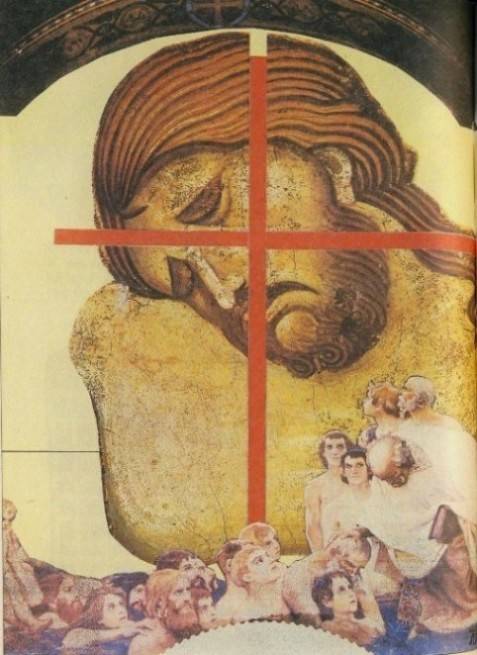
A. Brusilovsky. Illustration for D. Merezhkovsky's novel "Julian the Apostate" ("Death of the Gods")
Emperor Julian II, who entered history nicknamed the Apostate - a very complex and ambiguous figure. He was the nephew of the Holy and Equal-to-the-Apostles Emperor Constantine, received a good education and was brought up as a Christian from childhood. He was personally acquainted with the young "students", who would later be recognized as the Great Fathers of the Church and become known as Basil the Great (Caesarea) and Gregory the Theologian - he studied with them in Athens with the same teachers.
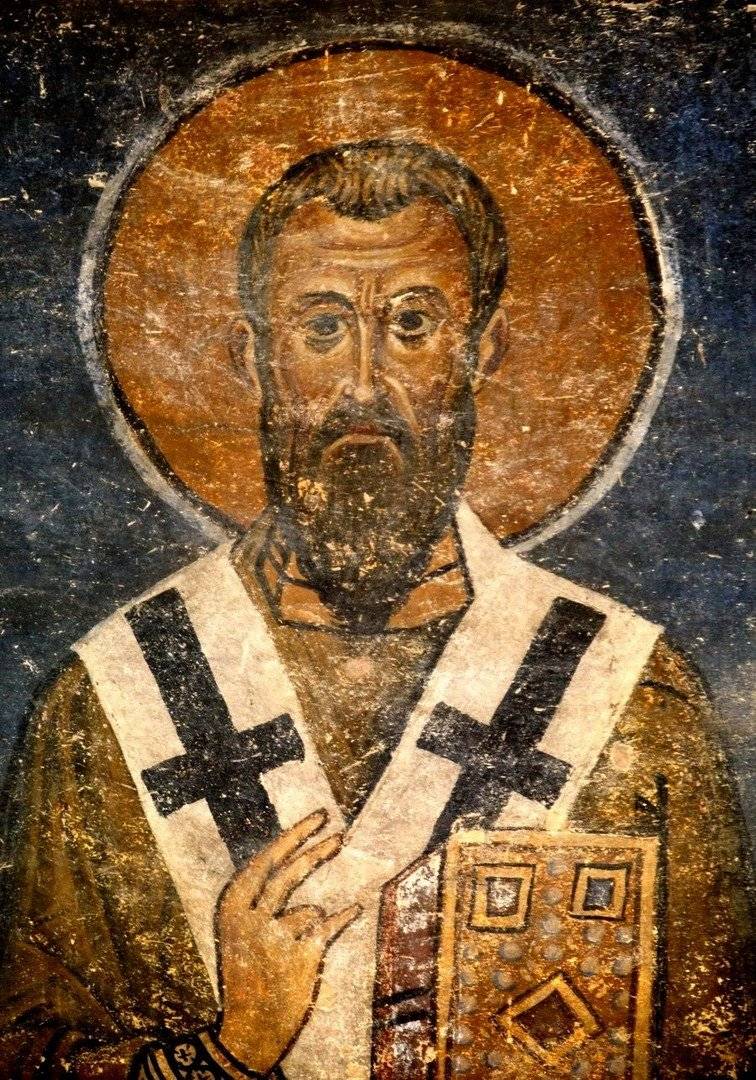
Saint Basil the Great, Archbishop of Caesarea in Cappadocia. Fresco of Hagia Sophia in Ohrid, Macedonia. 1040s It is believed that it was Basil of Caesarea who invented the iconostasis
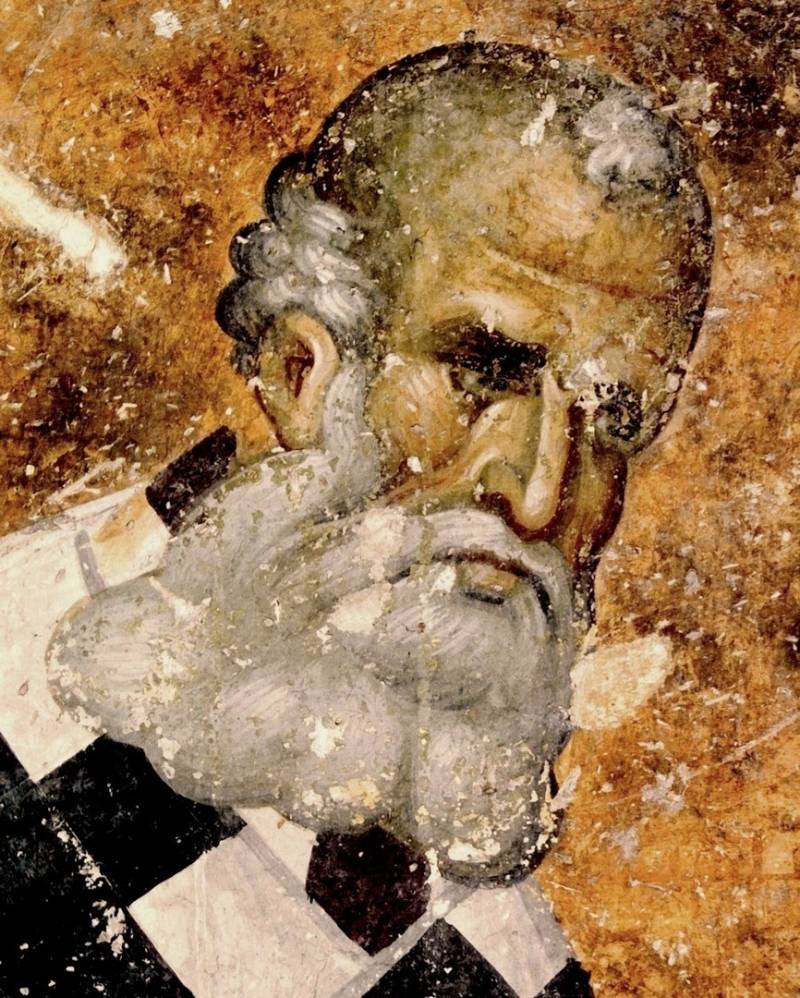
Saint Gregory the Theologian, Archbishop of Constantinople. Fresco of the Church of the Holy Trinity in Sopocany Monastery, Serbia. About 1265
Julian's choice in favor of paganism was not easy, but conscious and well thought out. At the same time, Julian personally was not “famous” for his particular cruelty towards church hierarchs or ordinary believers. Some excesses that took place on the ground were an initiative from below, and not the fulfillment of orders issued from above. None other than Saint Jerome called the anti-Christian activities of Emperor Julian II
Paul Orosius, a disciple of Blessed Augustine, says the same thing:
But these people still remembered something from real history. But who lived in the second half of the XVII - early XVIII centuries. Bishop Dimitry of Rostov, author of four books of the Lives of the Saints, calls Julian "great persecutor and destroyer of orthodox Christians". However, the “color of time” had already changed, and it was no longer Christians, but pagans who were persecuted in the Roman Empire. The “persecutors” were precisely the supporters of the new faith, who did not demonstrate either Christian mercy or elementary tolerance. The captures of pagan temples, the destruction of altars and statues (which is why so few of them have survived to our time) were quite commonplace. Quite typical can be considered the story of Socrates Scholasticus about how in Alexandria
And in 415, the famous Alexandrian Library suffered greatly from a crowd of Christian fanatics who, not limited to the destruction of books, killed one of the first female scientists - Hypatia, the daughter of the mathematician Theon, the last keeper of the library.
So, today we will talk about Julian II, his childhood and youth full of anxiety and danger, the short reign of the Roman Empire and death from wounds received during the campaign against Persia.
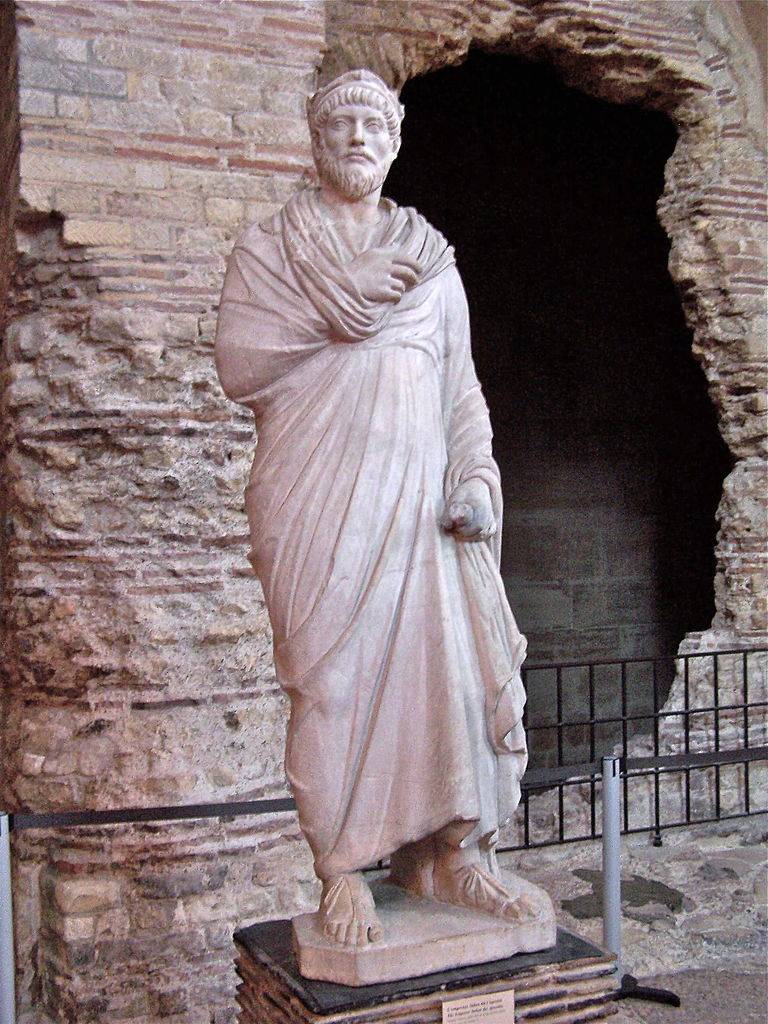
Julian II, statue in the Paris Cluny Museum
Julian's childhood
The full name of the hero of today's article is Flavius Claudius Julian. He was born in 331 and was the third son in the family of Julius Constantius, the nephew of the Holy and Equal-to-the-Apostles Constantine, the grandson of Emperor Constantius Chlorus. His mother Vasilina (Basilina), a Greek from Asia Minor, died almost immediately after giving birth, and at the age of 6, Julian also lost his father, who was killed during the so-called "massacre of 337". The fact is that Constantine the Great before his death divided the empire into 4 parts between his sons and nephews. However, this caused displeasure among the direct descendants of Constantine and their supporters, who accused their relatives of poisoning the emperor. As a result, two brothers of Constantine the Great (Julius Constantius and Dalmatius the Elder) and six nephews were killed during a riot by the soldiers of the Constantinople garrison. The sons of Constantine and his three nephews survived - Julian (the hero of the article), his half-brother (from another mother) Constantius Gallus and cousin Nepotian. This rebellion led to the division of the empire between the sons of Constantine the Great, who took the titles of Augusts - Constantius, Constans and Constantine.
Already in 340, Constantine died during a campaign against Constans. In 350, Constans was killed as a result of a conspiracy between the master of offices, Marcellinus, and the popular commander of Frankish origin, Flavius Magnentius, whom the troops proclaimed emperor.
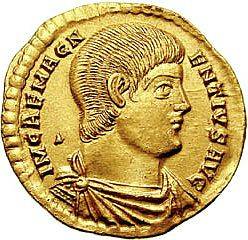
Coin Magna Magnentia
One of the surviving nephews of Constantine the Great, Nepotian, also declared his claims to power. In July 350, he briefly captured Rome, and with the help of a detachment of gladiators, but was defeated by Marcellinus. Eutropius says:
The civil war between Constantius II and Magnentius continued until 353 - until the usurper committed suicide.
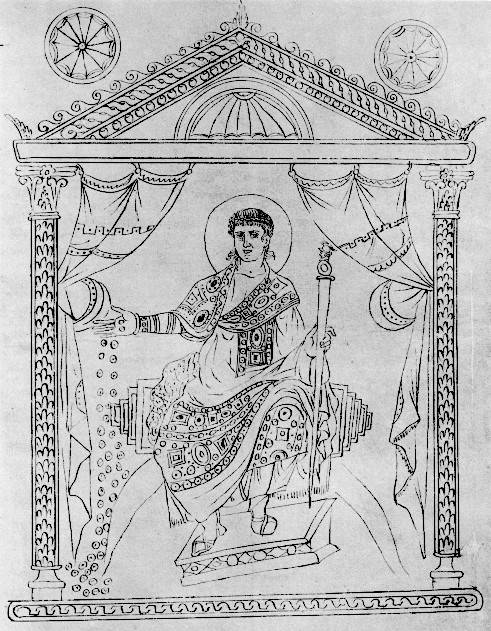
Constantius II, depicted in the Chronograph of 354
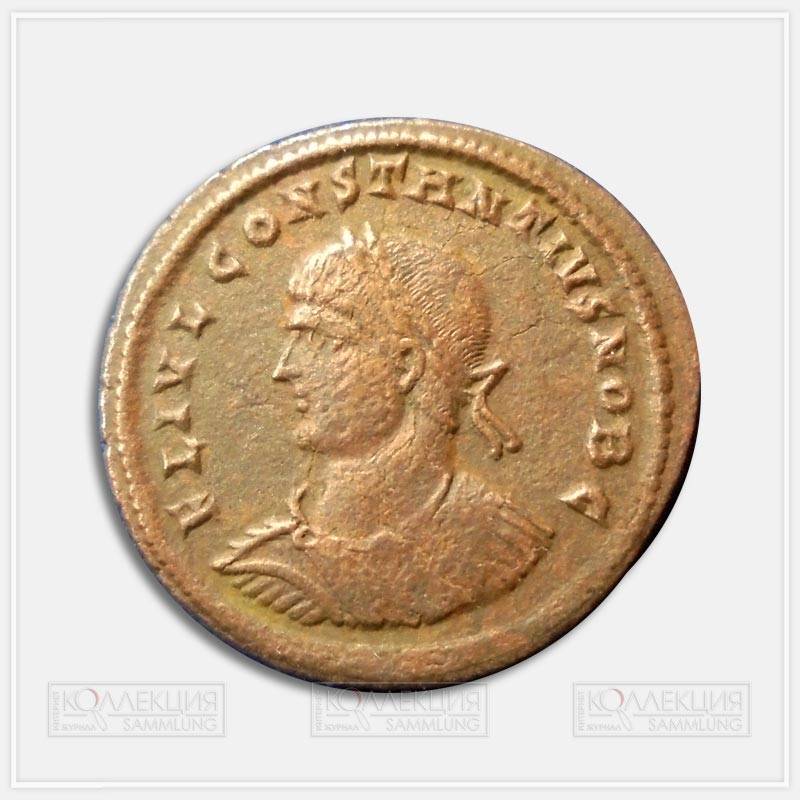
Constantius II on a bronze coin
Years of study of the future emperor
All this time, the orphaned Julian and his older brother Constantius Gallus were under strict supervision, and sometimes their lives literally hung in the balance. Nevertheless, the future emperor received a good education, and a versatile one. One of his teachers was Bishop Eusebius of Nicomedia, who had previously been a friend of the heresiarch Arius. In 337, Eusebius was one of the false witnesses who accused the victims of the "massacre" of poisoning Constantine the Great.
An Arian of extreme views was another teacher of Julian, Aetius of Antioch, who had a "talking" nickname "Atheist". He had such an influence on the student that, having become emperor, Julian brought him closer to himself - the only one of the Christians.
No less interesting is the third teacher - the eunuch Mardonius, who is called a baptized Scythian and a great connoisseur of classical pagan philosophy. The Hellenophiles of young Julian stretched so far that he knew Greek much better than Latin.
Julian was greatly impressed by his acquaintance in Ephesus with the neoplatonist Maxim, who was also a magician, and, according to his contemporaries, made the statues move and smile, and also lit torches in their hands.
Meanwhile, Emperor Constantius did not approve of Julian's enthusiasm for Hellenic philosophy, to put it mildly, and therefore this prince learned from a young age to hide his thoughts. Wishing to pass himself off as a zealous Christian, he cut his hair short and shaved his chin (long hair and a beard at that time were attributes of pagan philosophy admirers), led an ascetic life (which was considered an indicator of adherence to the Christian faith).
Meanwhile, Flavius Claudius Constantius Gallus, Julian's elder brother, was unexpectedly approached in 351 by Constantius II, who married his sister to him and, with the title of Caesar (junior co-ruler), sent him to manage the eastern part of the empire. His seat was Antioch.
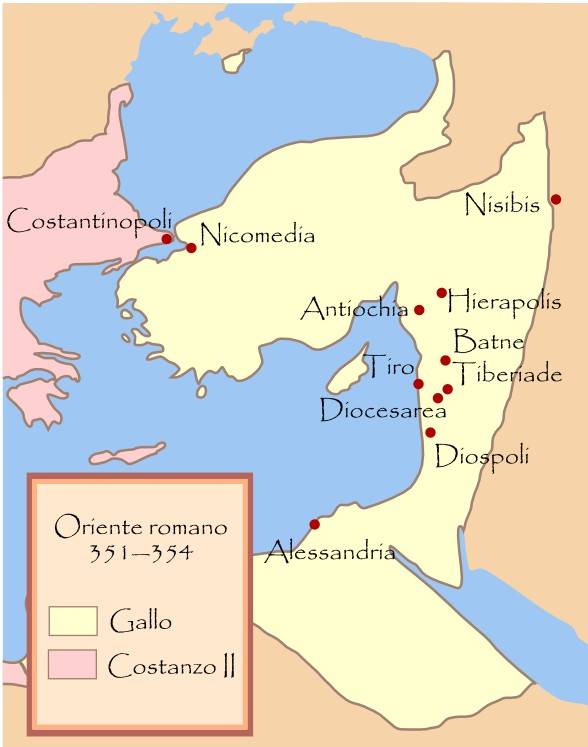
Territory transferred to the administration of Caesar Constantius Gallus
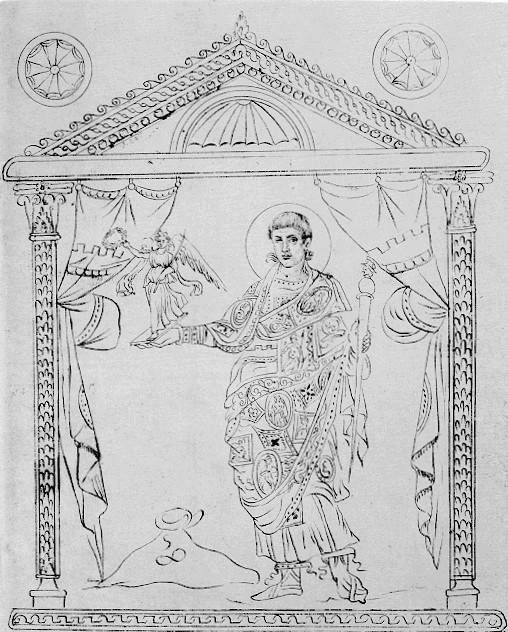
Constantius Gallus, depicted in the Chronograph of 354
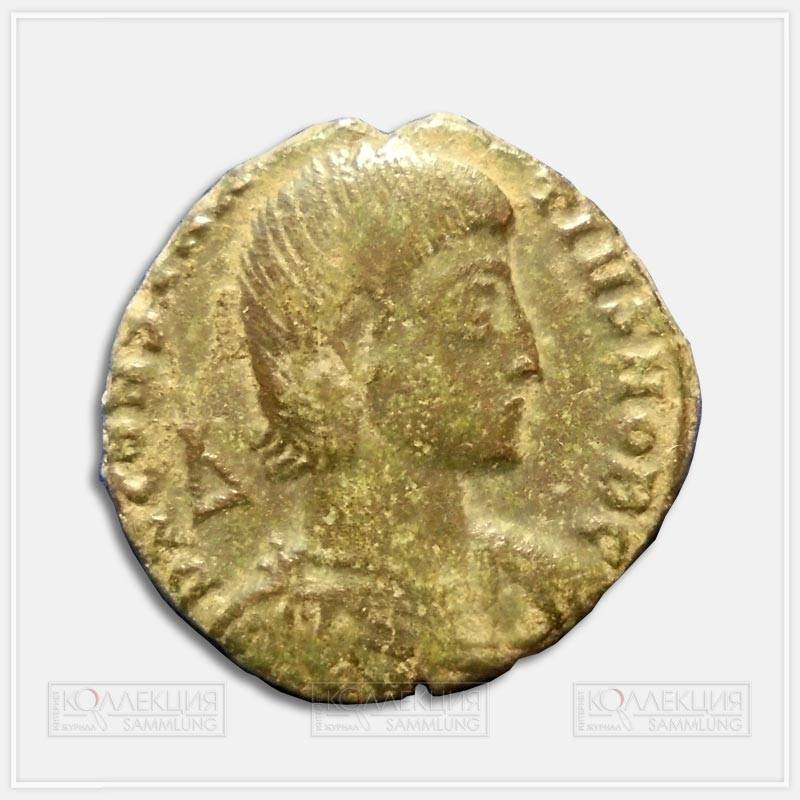
Coin of Caesar Constantius Gallus
Here he fought with the Persians, repulsed the raid of the Isaurians, crushed the uprising in Judea. But in 354, Constantius II summoned him to the city of Pola (Pula, Croatia), where he ordered his execution. Julian was then transferred to Mediolan (Milan), where for 7 months he was actually under house arrest. Nothing reprehensible could be found in Julian's behavior, but they did not execute him then, apparently, only because he was the only male relative of the emperor - his cousin. Constance's wife, Eusebius, advised him to allow Julian to continue his studies, this time in Athens. In this city, Julian, among others, met the future Great Fathers of the Church, who are now known as Basil the Great and Gregory the Theologian. And here, as many believe, he was initiated into the Eleusinian mysteries, which can be seen as an act of renunciation of Christianity.
A biased description of Julian's appearance, left by Gregory the Theologian, has been preserved:
It seems that if Julian had gone down in history as a pious Christian emperor, Gregory's characterization would have been completely different. But the Roman historian Ammian Marcellinus, who served in the army of Emperor Julian and took part in his last campaign, gives a completely different and, perhaps, more objective description:
And here is what Marcellinus writes about the character of this emperor:
About six months later, Constantius II again called Julian to him. On the way from Athens, Julian turned to Asia Minor to see the places of the wars of the Achaeans and the Trojans. Here he met Bishop Pigasius, who demonstrated an amazing and uncharacteristic tolerance for Christians of that time. He did not even spit or whistle, like others, entering the temples of the Roman and Greek gods. Speaking with Julian, he said:
Julian remembered Pigasius and, upon accession to the throne, he appointed him one of the high priests.
Caesar Julian
So, six months later, Constantius II recalled Julian from Athens, married his sister Elena, granted him the title of Caesar and appointed him his governor in Gaul (not forgetting to appoint his people as spies as assistants to him). It is said that, as he set out on his journey, Julian said:
Some believe that these words were addressed mainly to Constance, in whose eyes he, remembering the fate of his brother, wanted to look like a miserable and inexperienced schoolboy. By the way, he chose Lutetia Parisiev as his residence, in the future - Paris.
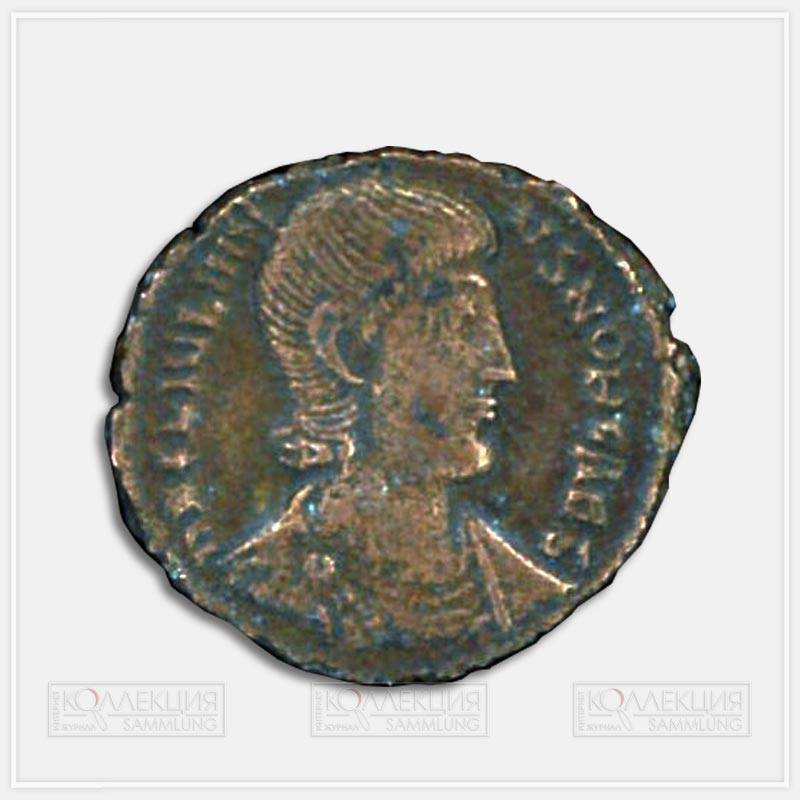
Coin of Caesar Julian
And Gaul at that time was actually captured by the Germans, who were recently called for help by the warring Flavius Magnentius and Constantius II. They were also called Alemanni (literally, "all people"). Even the Colony of Agrippina (present-day Cologne) was captured and destroyed by the barbarians.
Julian gave the first serious battle to the Germans at Brotomag (Brumat). Pushing forward the flanks, so that the formation of his troops became like a crescent moon, he defeated the enemy troops, taking quite a few prisoners. Then he managed to push back the Germans who attacked Lugdun (Lyon). Finally, it's time for offensive action. The Germans, who were camped on the Rhine Islands, did not expect an attack, because they knew that the Romans did not have ships or enough boats. However, in the summer the river became very shallow, and the soldiers, led by the military tribune of Bainobavd, were able to cross it where they wade, where they swam. Their unexpected appearance led to panic among the Germans. Many of the Alemanni were killed, but the Romans, according to sources, did not lose a single warrior. The Germans withdrew to the right bank of the Rhine, and Julian ordered the restoration of the old and the construction of new coastal fortifications. But his opponents were not broken. Seven tribal leaders concluded an agreement on joint actions, and Chonodomarius, who had experience in fighting against the Romans and had previously won several victories, stood at the head of the new army, numbering up to 35 thousand people. Having crossed the Rhine, the Alemanni approached Argentorat (Strasbourg). From here, their leaders sent ambassadors to Julian, who handed over a letter demanding "liberate the lands they have acquired with their courage and strength weapons". The Germans also referred to the letter of Constantius II, who really promised them (in exchange for military assistance) the right to settle in the Gallic lands.
Barbation's detachment was ambushed, lost many soldiers, part of the convoy, and retired to winter quarters before the agreed time. Julian's army now numbered only about 13 soldiers. Nevertheless, he moved his troops forward and, having traveled 30 km, attacked the positions of the Alemanni. Roman horsemen overturned the enemy cavalry. Julian's foot soldiers, thanks to training and discipline, also successfully acted against the numerically superior Germans. They say that the Alemanni lost up to 6 thousand people killed and the same number of prisoners, among whom was Chonodomarius (he was sent to Constantius II - to Mediolan).
After that, Julian transferred hostilities to the right bank of the Rhine. In the summer of 358, he defeated the Salic Franks, who occupied the lands between the Meuse and the Scheldt. Then the Hamavas, who had settled on Roman territory without permission, were expelled. In 359, Julian again crossed the Rhine, but the Germans no longer dared to fight his army, and most of the tribal leaders expressed their obedience.
The next article will tell about how Caesar Julian became Augustus Julian II, about his attempts to revive pagan cults and the tragic death of the apostate emperor.
Information